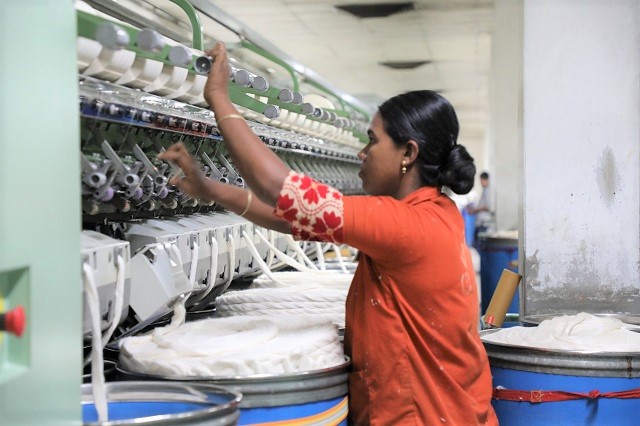On the other hand, due to the global ship and container crisis, the country’s main seaport has to come to Chittagong. For these two reasons, shipping companies are not interested in bringing shipments of imported goods to Bangladesh. As a result, the country’s export-oriented spinning mills need extra time to complete cotton imports. As a result, when the raw cotton arrives at the port, it may be too late to release the consignment in refining or fumigation. The editorial is about No Spinning Mill Available To Produce Cotton.
The mills face a crisis in cotton production in both international and domestic contexts. If this trend continues, there is a fear that the production system will be disrupted, said the concerned. According to the Bangladesh Textile Mills Association (BTMA), in the fiscal year 2019-20, Bangladesh imported 75 lakh bales of cotton. In 2020-21, the import exceeded 7 lakh bales. Imports are projected to exceed 9 million bales by the current financial year. But the uncertainty over the receipt of imported cotton has left spinning mill owners worried.
According to BTMA sources, the spinning mills have to face many problems in importing cotton. In addition, there is a port crisis with the global ship and container crisis. The Chittagong seaport in the country also has problems with the crisis of feeder’s vessels. All in all, many shipping companies are not interested in transporting Bangladeshi goods.
There are more than 430 BTMA member spinning mills in the country. Additional time is required to import cotton and other raw materials from these mills to other countries. In some cases, it takes five to six months. Due to the non-arrival of purchased cotton in the country on time, there is a risk of disruption in the production system of the mills.
Bangladesh imports raw cotton mainly from the United States, India, East, and West Africa, Australia, Brazil, CIS, and other countries. Considering the technical situation, the spinning mills have to be kept open 24 hours a day. Therefore, in the interest of continuing production, there is no alternative to continuing an uninterrupted supply of raw cotton in the mills. In addition, spinning mills have to continue importing raw cotton to supply the finished yarn to the garment sector in the shortest possible time.
Although not applicable to raw cotton of any other country, cotton imported from the United States has to be refined or fumigated before unloading from the port under the guidelines and law of the Ministry of Agriculture. After disembarking from the cotton ship in the United States, after completing the fumigation process, one has to wait for 72 hours to get the results. Following the issuance of the certificate, subject to receipt of the results, the customs authorities commenced the assessment of raw cotton. All this has further complicated the situation of unloading imported raw cotton.
Meanwhile, there are delays in importing raw cotton and complications with import permits (IPs). BTMA spinning mills have to collect IP from the Plant Protection Wing of the Department of Agricultural Extension before importing raw cotton. In this case, the term of IP is usually fixed at four months. However, if, for some reason, the concerned mills are not able to import cotton against the IP at a later time, the term of the IP has to be extended subject to payment of the required fee in terms of application.
But even for an extended period, import of cotton is not possible in many cases. Given the current situation, the mills are currently required to import cotton for six-seven months or more. On the other hand, it takes 9-10 months for imported cotton to reach Bangladesh due to transit and ship congestion at Chittagong port.
Meanwhile, as the cotton import was not completed even during the extended IP period, the mills had to release the imported cotton by taking special orders. In most cases, the receipt of such special orders is time-consuming. Furthermore, the BTMA said that damage to the port, increase in production cost of yarn due to harassment, purchase of cotton from the local market at high prices, financial loss, business costs, and overtime of mills are hampering the production of mills.
BTMA President Mohammad Ali Khokon said member mills face various problems in importing raw materials due to shipping problems in cotton imports. Due to the non-arrival of purchased cotton in the country on time, there is a risk of disruption in the production system of the mills. Again, production is being disrupted due to the gas crisis. Meanwhile, the process of increasing the price of gas has also started. All in all, the situation is getting worse.
To read more Editorials, Please Click Here!



















